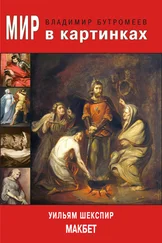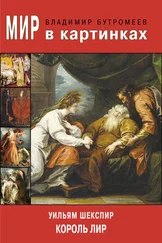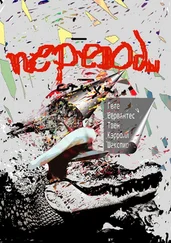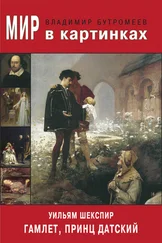Уильям Шекспир - Love's Labour's Lost
Здесь есть возможность читать онлайн «Уильям Шекспир - Love's Labour's Lost» — ознакомительный отрывок электронной книги совершенно бесплатно, а после прочтения отрывка купить полную версию. В некоторых случаях можно слушать аудио, скачать через торрент в формате fb2 и присутствует краткое содержание. Издательство: Иностранный паблик, Жанр: Европейская старинная литература, Драматургия, foreign_dramaturgy, на английском языке. Описание произведения, (предисловие) а так же отзывы посетителей доступны на портале библиотеки ЛибКат.
- Название:Love's Labour's Lost
- Автор:
- Издательство:Иностранный паблик
- Жанр:
- Год:неизвестен
- ISBN:нет данных
- Рейтинг книги:3 / 5. Голосов: 1
-
Избранное:Добавить в избранное
- Отзывы:
-
Ваша оценка:
- 60
- 1
- 2
- 3
- 4
- 5
Love's Labour's Lost: краткое содержание, описание и аннотация
Предлагаем к чтению аннотацию, описание, краткое содержание или предисловие (зависит от того, что написал сам автор книги «Love's Labour's Lost»). Если вы не нашли необходимую информацию о книге — напишите в комментариях, мы постараемся отыскать её.
Love's Labour's Lost — читать онлайн ознакомительный отрывок
Ниже представлен текст книги, разбитый по страницам. Система сохранения места последней прочитанной страницы, позволяет с удобством читать онлайн бесплатно книгу «Love's Labour's Lost», без необходимости каждый раз заново искать на чём Вы остановились. Поставьте закладку, и сможете в любой момент перейти на страницу, на которой закончили чтение.
Интервал:
Закладка:
Enter DULL, COSTARD, and JAQUENETTA
DULL. Sir, the Duke's pleasure is that you keep Costard safe;
and
you must suffer him to take no delight nor no penance; but 'a
must fast three days a week. For this damsel, I must keep her
at
the park; she is allow'd for the day-woman. Fare you well.
ARMADO. I do betray myself with blushing. Maid!
JAQUENETTA. Man!
ARMADO. I will visit thee at the lodge.
JAQUENETTA. That's hereby.
ARMADO. I know where it is situate.
JAQUENETTA. Lord, how wise you are!
ARMADO. I will tell thee wonders.
JAQUENETTA. With that face?
ARMADO. I love thee.
JAQUENETTA. So I heard you say.
ARMADO. And so, farewell.
JAQUENETTA. Fair weather after you!
DULL. Come, Jaquenetta, away. Exit with JAQUENETTA
ARMADO. Villain, thou shalt fast for thy offences ere thou be
pardoned.
COSTARD. Well, sir, I hope when I do it I shall do it on a full
stomach.
ARMADO. Thou shalt be heavily punished.
COSTARD. I am more bound to you than your fellows, for they are
but
lightly rewarded.
ARMADO. Take away this villain; shut him up.
MOTH. Come, you transgressing slave, away.
COSTARD. Let me not be pent up, sir; I will fast, being loose.
MOTH. No, sir; that were fast, and loose. Thou shalt to prison.
COSTARD. Well, if ever I do see the merry days of desolation
that I
have seen, some shall see.
MOTH. What shall some see?
COSTARD. Nay, nothing, Master Moth, but what they look upon. It
is
not for prisoners to be too silent in their words, and
therefore
I will say nothing. I thank God I have as little patience as
another man, and therefore I can be quiet.
Exeunt MOTH and COSTARD
ARMADO. I do affect the very ground, which is base, where her
shoe,
which is baser, guided by her foot, which is basest, doth
tread.
I shall be forsworn- which is a great argument of falsehood-
if I
love. And how can that be true love which is falsely
attempted?
Love is a familiar; Love is a devil. There is no evil angel
but
Love. Yet was Samson so tempted, and he had an excellent
strength; yet was Solomon so seduced, and he had a very good
wit.
Cupid's butt-shaft is too hard for Hercules' club, and
therefore
too much odds for a Spaniard's rapier. The first and second
cause
will not serve my turn; the passado he respects not, the
duello
he regards not; his disgrace is to be called boy, but his
glory
is to subdue men. Adieu, valour; rust, rapier; be still,
drum;
for your manager is in love; yea, he loveth. Assist me, some
extemporal god of rhyme, for I am sure I shall turn sonnet.
Devise, wit; write, pen; for I am for whole volumes in folio.
Exit
ACT II. SCENE II. The park
Enter the PRINCESS OF FRANCE, with three attending ladies, ROSALINE, MARIA, KATHARINE, BOYET, and two other LORDS
BOYET. Now, madam, summon up your dearest spirits.
Consider who the King your father sends,
To whom he sends, and what's his embassy:
Yourself, held precious in the world's esteem,
To parley with the sole inheritor
Of all perfections that a man may owe,
Matchless Navarre; the plea of no less weight
Than Aquitaine, a dowry for a queen.
Be now as prodigal of all dear grace
As Nature was in making graces dear,
When she did starve the general world beside
And prodigally gave them all to you.
PRINCESS OF FRANCE. Good Lord Boyet, my beauty, though but
mean,
Needs not the painted flourish of your praise.
Beauty is bought by judgment of the eye,
Not utt'red by base sale of chapmen's tongues;
I am less proud to hear you tell my worth
Than you much willing to be counted wise
In spending your wit in the praise of mine.
But now to task the tasker: good Boyet,
You are not ignorant all-telling fame
Doth noise abroad Navarre hath made a vow,
Till painful study shall outwear three years,
No woman may approach his silent court.
Therefore to's seemeth it a needful course,
Before we enter his forbidden gates,
To know his pleasure; and in that behalf,
Bold of your worthiness, we single you
As our best-moving fair solicitor.
Tell him the daughter of the King of France,
On serious business, craving quick dispatch,
Importunes personal conference with his Grace.
Haste, signify so much; while we attend,
Like humble-visag'd suitors, his high will.
BOYET. Proud of employment, willingly I go.
PRINCESS OF FRANCE. All pride is willing pride, and yours is
so.
Exit BOYET
Who are the votaries, my loving lords,
That are vow-fellows with this virtuous duke?
FIRST LORD. Lord Longaville is one.
PRINCESS OF FRANCE. Know you the man?
MARIA. I know him, madam; at a marriage feast,
Between Lord Perigort and the beauteous heir
Of Jaques Falconbridge, solemnized
In Normandy, saw I this Longaville.
A man of sovereign parts, peerless esteem'd,
Well fitted in arts, glorious in arms;
Nothing becomes him ill that he would well.
The only soil of his fair virtue's gloss,
If virtue's gloss will stain with any soil,
Is a sharp wit match'd with too blunt a will,
Whose edge hath power to cut, whose will still wills
It should none spare that come within his power.
PRINCESS OF FRANCE. Some merry mocking lord, belike; is't so?
MARIA. They say so most that most his humours know.
PRINCESS OF FRANCE. Such short-liv'd wits do wither as they
grow.
Who are the rest?
KATHARINE. The young Dumain, a well-accomplish'd youth,
Of all that virtue love for virtue loved;
Most power to do most harm, least knowing ill,
For he hath wit to make an ill shape good,
And shape to win grace though he had no wit.
I saw him at the Duke Alencon's once;
And much too little of that good I saw
Is my report to his great worthiness.
ROSALINE. Another of these students at that time
Was there with him, if I have heard a truth.
Berowne they call him; but a merrier man,
Within the limit of becoming mirth,
I never spent an hour's talk withal.
His eye begets occasion for his wit,
For every object that the one doth catch
The other turns to a mirth-moving jest,
Which his fair tongue, conceit's expositor,
Delivers in such apt and gracious words
That aged ears play truant at his tales,
And younger hearings are quite ravished;
So sweet and voluble is his discourse.
PRINCESS OF FRANCE. God bless my ladies! Are they all in love,
That every one her own hath garnished
With such bedecking ornaments of praise?
FIRST LORD. Here comes Boyet.
Re-enter BOYET
PRINCESS OF FRANCE. Now, what admittance, lord?
BOYET. Navarre had notice of your fair approach,
And he and his competitors in oath
Were all address'd to meet you, gentle lady,
Before I came. Marry, thus much I have learnt:
He rather means to lodge you in the field,
Like one that comes here to besiege his court,
Than seek a dispensation for his oath,
To let you enter his unpeopled house.
[The LADIES-IN-WAITING mask]
Here comes Navarre.
KING. Fair Princess, welcome to the court of Navarre.
PRINCESS OF FRANCE. 'Fair' I give you back again; and 'welcome'
I
have not yet. The roof of this court is too high to be yours,
and
welcome to the wide fields too base to be mine.
KING. You shall be welcome, madam, to my court.
PRINCESS OF FRANCE. I will be welcome then; conduct me thither.
KING. Hear me, dear lady: I have sworn an oath-
PRINCESS OF FRANCE. Our Lady help my lord! He'll be forsworn.
KING. Not for the world, fair madam, by my will.
PRINCESS OF FRANCE. Why, will shall break it; will, and nothing
else.
KING. Your ladyship is ignorant what it is.
PRINCESS OF FRANCE. Were my lord so, his ignorance were wise,
Where now his knowledge must prove ignorance.
I hear your Grace hath sworn out house-keeping.
'Tis deadly sin to keep that oath, my lord,
And sin to break it.
But pardon me, I am too sudden bold;
To teach a teacher ill beseemeth me.
Vouchsafe to read the purpose of my coming,
And suddenly resolve me in my suit. [Giving a paper]
KING. Madam, I will, if suddenly I may.
PRINCESS OF FRANCE. YOU Will the sooner that I were away,
For you'll prove perjur'd if you make me stay.
BEROWNE. Did not I dance with you in Brabant once?
KATHARINE. Did not I dance with you in Brabant once?
BEROWNE. I know you did.
KATHARINE. How needless was it then to ask the question!
BEROWNE. You must not be so quick.
KATHARINE. 'Tis long of you, that spur me with such questions.
BEROWNE. Your wit 's too hot, it speeds too fast, 'twill tire.
KATHARINE. Not till it leave the rider in the mire.
BEROWNE. What time o' day?
KATHARINE. The hour that fools should ask.
BEROWNE. Now fair befall your mask!
KATHARINE. Fair fall the face it covers!
BEROWNE. And send you many lovers!
KATHARINE. Amen, so you be none.
BEROWNE. Nay, then will I be gone.
KING. Madam, your father here doth intimate
The payment of a hundred thousand crowns;
Being but the one half of an entire sum
Disbursed by my father in his wars.
But say that he or we, as neither have,
Receiv'd that sum, yet there remains unpaid
A hundred thousand more, in surety of the which,
One part of Aquitaine is bound to us,
Although not valued to the money's worth.
If then the King your father will restore
But that one half which is unsatisfied,
We will give up our right in Aquitaine,
And hold fair friendship with his Majesty.
But that, it seems, he little purposeth,
For here he doth demand to have repaid
A hundred thousand crowns; and not demands,
On payment of a hundred thousand crowns,
To have his title live in Aquitaine;
Which we much rather had depart withal,
And have the money by our father lent,
Than Aquitaine so gelded as it is.
Dear Princess, were not his requests so far
From reason's yielding, your fair self should make
A yielding 'gainst some reason in my breast,
And go well satisfied to France again.
PRINCESS OF FRANCE. You do the King my father too much wrong,
And wrong the reputation of your name,
In so unseeming to confess receipt
Of that which hath so faithfully been paid.
KING. I do protest I never heard of it;
And, if you prove it, I'll repay it back
Or yield up Aquitaine.
PRINCESS OF FRANCE. We arrest your word.
Boyet, you can produce acquittances
For such a sum from special officers
Of Charles his father.
KING. Satisfy me so.
BOYET. So please your Grace, the packet is not come,
Where that and other specialties are bound;
To-morrow you shall have a sight of them.
KING. It shall suffice me; at which interview
All liberal reason I will yield unto.
Meantime receive such welcome at my hand
As honour, without breach of honour, may
Make tender of to thy true worthiness.
You may not come, fair Princess, within my gates;
But here without you shall be so receiv'd
As you shall deem yourself lodg'd in my heart,
Though so denied fair harbour in my house.
Your own good thoughts excuse me, and farewell.
To-morrow shall we visit you again.
PRINCESS OF FRANCE. Sweet health and fair desires consort your
Grace!
KING. Thy own wish wish I thee in every place.
Exit with attendants
BEROWNE. Lady, I will commend you to mine own heart.
ROSALINE. Pray you, do my commendations;
I would be glad to see it.
BEROWNE. I would you heard it groan.
ROSALINE. Is the fool sick?
BEROWNE. Sick at the heart.
ROSALINE. Alack, let it blood.
BEROWNE. Would that do it good?
ROSALINE. My physic says 'ay.'
BEROWNE. Will YOU prick't with your eye?
ROSALINE. No point, with my knife.
BEROWNE. Now, God save thy life!
ROSALINE. And yours from long living!
BEROWNE. I cannot stay thanksgiving. [Retiring]
DUMAIN. Sir, I pray you, a word: what lady is that same?
BOYET. The heir of Alencon, Katharine her name.
DUMAIN. A gallant lady! Monsieur, fare you well. Exit
LONGAVILLE. I beseech you a word: what is she in the white?
BOYET. A woman sometimes, an you saw her in the light.
LONGAVILLE. Perchance light in the light. I desire her name.
BOYET. She hath but one for herself; to desire that were a
shame.
LONGAVILLE. Pray you, sir, whose daughter?
BOYET. Her mother's, I have heard.
LONGAVILLE. God's blessing on your beard!
BOYET. Good sir, be not offended;
She is an heir of Falconbridge.
LONGAVILLE. Nay, my choler is ended.
She is a most sweet lady.
BOYET. Not unlike, sir; that may be. Exit LONGAVILLE
BEROWNE. What's her name in the cap?
BOYET. Rosaline, by good hap.
BEROWNE. Is she wedded or no?
BOYET. To her will, sir, or so.
BEROWNE. You are welcome, sir; adieu!
BOYET. Farewell to me, sir, and welcome to you.
Exit BEROWNE. LADIES Unmask
MARIA. That last is Berowne, the merry mad-cap lord;
Not a word with him but a jest.
BOYET. And every jest but a word.
PRINCESS OF FRANCE. It was well done of you to take him at his
word.
BOYET. I was as willing to grapple as he was to board.
KATHARINE. Two hot sheeps, marry!
BOYET. And wherefore not ships?
No sheep, sweet lamb, unless we feed on your lips.
KATHARINE. You sheep and I pasture- shall that finish the jest?
BOYET. So you grant pasture for me. [Offering to kiss her]
KATHARINE. Not so, gentle beast;
My lips are no common, though several they be.
BOYET. Belonging to whom?
KATHARINE. To my fortunes and me.
PRINCESS OF FRANCE. Good wits will be jangling; but, gentles,
agree;
This civil war of wits were much better used
On Navarre and his book-men, for here 'tis abused.
BOYET. If my observation, which very seldom lies,
By the heart's still rhetoric disclosed with eyes,
Deceive me not now, Navarre is infected.
PRINCESS OF FRANCE. With what?
Интервал:
Закладка:
Похожие книги на «Love's Labour's Lost»
Представляем Вашему вниманию похожие книги на «Love's Labour's Lost» списком для выбора. Мы отобрали схожую по названию и смыслу литературу в надежде предоставить читателям больше вариантов отыскать новые, интересные, ещё непрочитанные произведения.
Обсуждение, отзывы о книге «Love's Labour's Lost» и просто собственные мнения читателей. Оставьте ваши комментарии, напишите, что Вы думаете о произведении, его смысле или главных героях. Укажите что конкретно понравилось, а что нет, и почему Вы так считаете.










